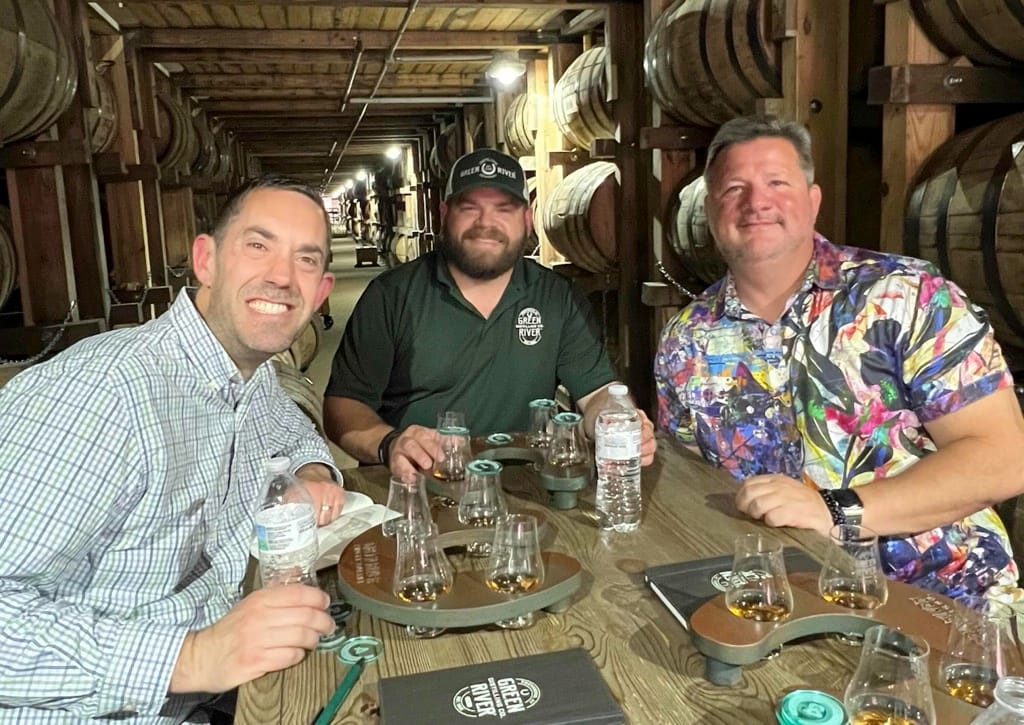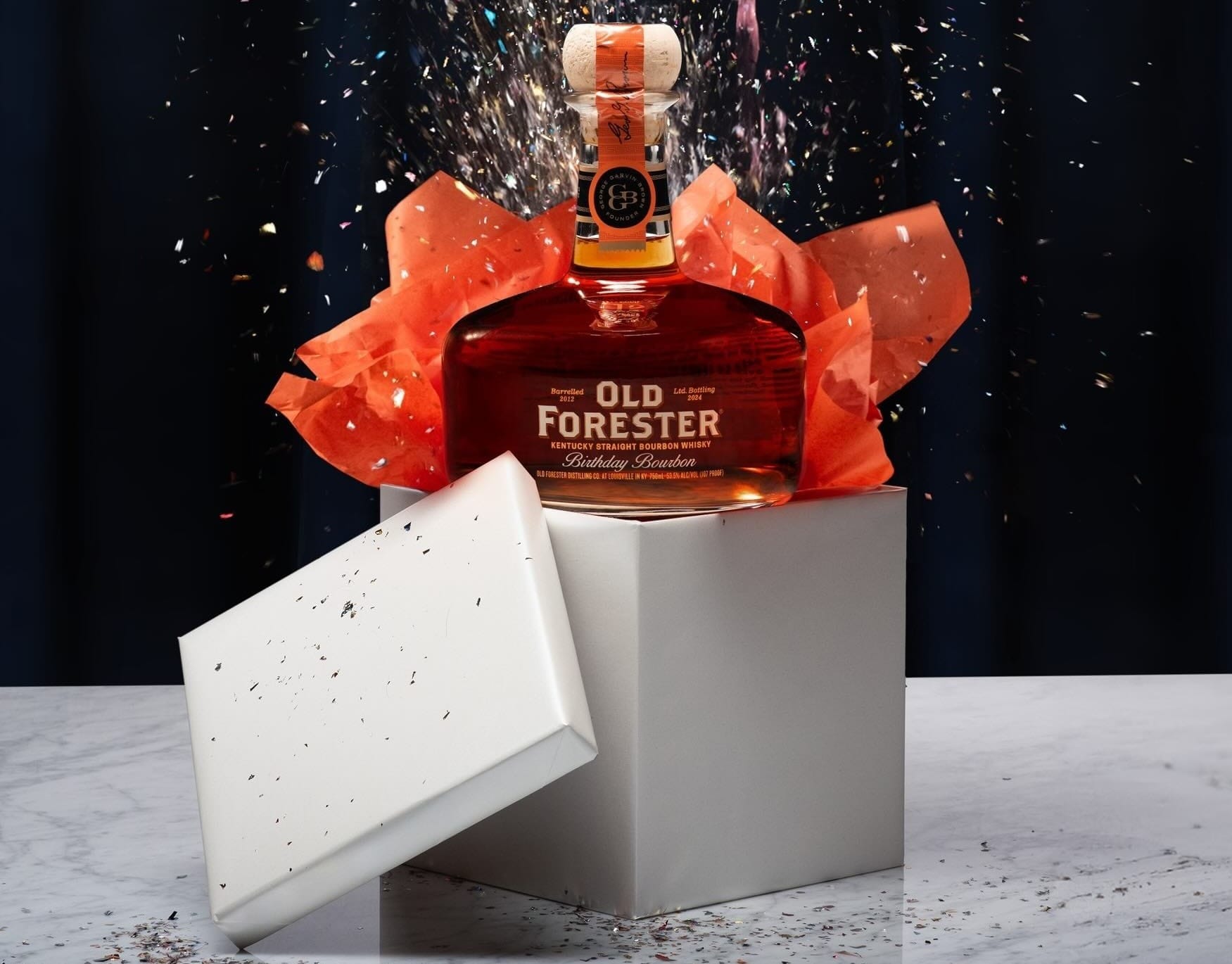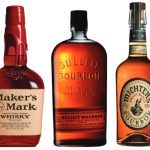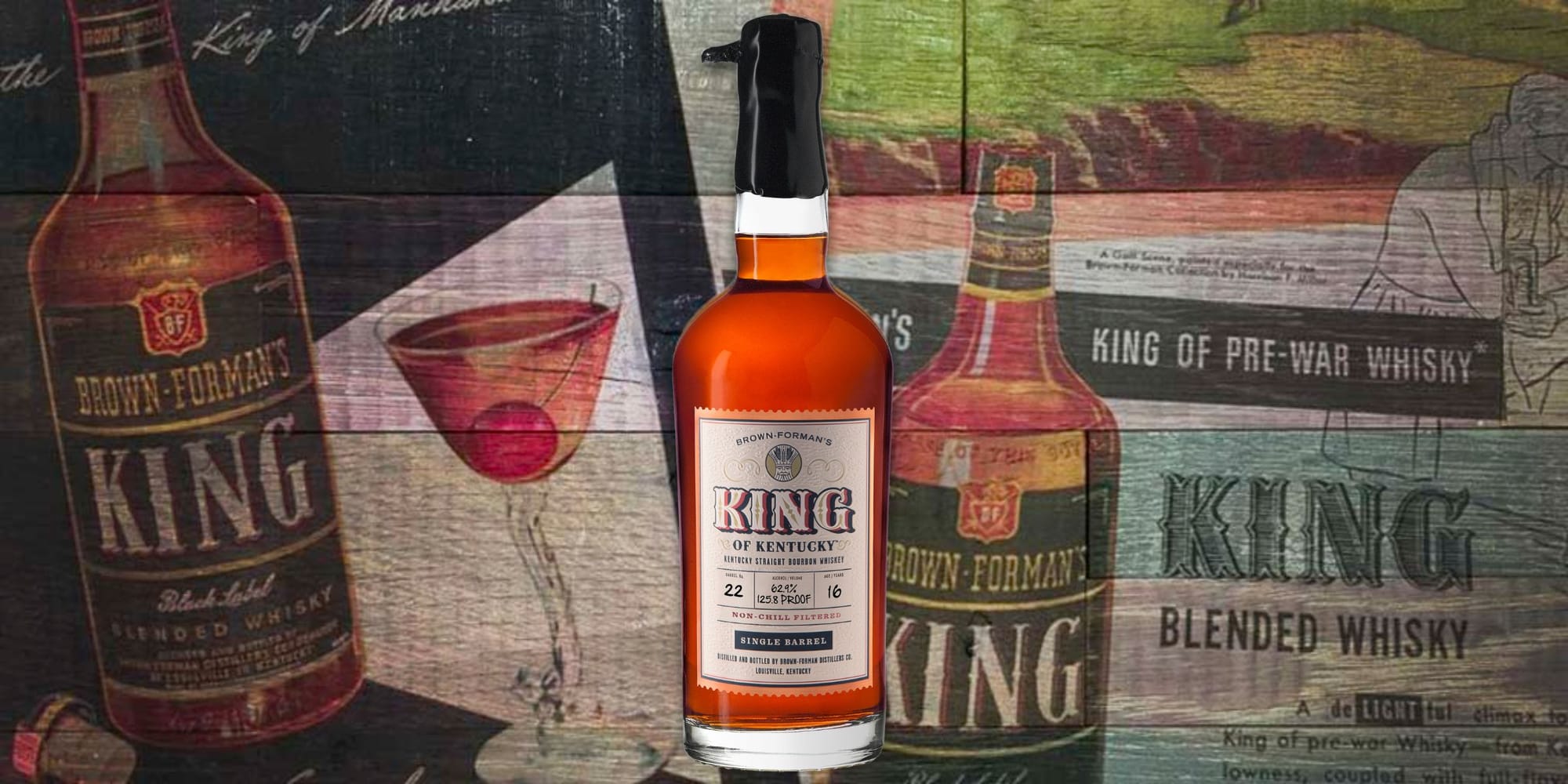I swear this story is about Aaron Harris, master distiller at Green River Distilling Co. But I think you’ll enjoy this intro for the insight you’ll get into this brand’s leap from obscurity to bourbon-bargain favorite. Hang in there to learn how Harris wound up at this legendary distillery.
On the evening of Dec. 10, 2021, I had a chance introduction to Jacob Call, master distiller of Green River Distilling Co., in a hotel lobby in Owensboro, Ky. The accomplished distiller was watching one of his kids sing Christmas carols in the lobby, and during a break, he told me about the distillery, whose name I barely recognized because just a year before, it was still branded as O.Z. Tyler.
“We have a great tour. Go see it,” he said. “You’ll enjoy it. Lots of history.”
The tour was great, the historic facility was amazing, the popcorn-buttery Bradshaw Bourbon poured on the tour was neither, but the 3-year-old Wheel Horse Bourbon and Rye were nice and showed promise. Our guide, Caryn Wells, promised older Green River brand whiskeys were on their way, and that big things would be happening in the distillery’s future.
The following February, Green River’s marketing team threw a big party at the distillery to announce the “Whiskey Without Regret” (no kidding, that was its late 1890s slogan) was back. That party included about 150 folks from the whiskey industry, friends of the brand, public officials from Owensboro and media dorks pleased that overnight stays were comped on this visit to an out-of-the-way distillery.
Green River’s leadership team was introduced between jokes and toasts, drinking and nibbling began and spilled over to a nearby restaurant later into the evening. The message conveyed was clear: This brand and distillery, created in Owensboro in 1885, was back, and its future was bright.
Then, unexpectedly, Bardstown Bourbon Co. bought Green River Distilling Co. four months later, in June 2022. It seemed a gutsy move for BBC, a distillery only eight years old that had just been bought out by a venture capital group two months earlier.
The Green River leadership introduced before was gone. I don’t know if Call was offered a deal that he declined, but he may have sniffed the transition in the wind earlier. In October 2023, he co-founded Western Kentucky Distillery in nearby Beaver Dam, Ky. The only remainder I knew was Wells, the bubbly and bright tour guide. She would become GR’s national brand ambassador.
The change cracked the door for another master distiller, and Aaron Harris walked through that August. The veteran whiskey maker had learned the trade hands-on at distilleries large and small. After a long stay at a distillery in Columbus, Ohio, Harris and his family longed to be back in Kentucky. And that’s how he got to Owensboro.
When Harris came aboard, Green River’s annual output was 90,000 barrels a year. Under his watch, it’s increased by a solid 20 percent. Its outstanding single-barrel program has received rave reviews, and it just launched a new Full-Proof line of its standard bourbon. Indeed, big things are happening at Green River, and Aaron Harris is at the production helm. Following are his own words on the journey.

I launched my career at Barton 1792 Distillery in Bardstown, Kentucky. A distillery supervisor hadn’t been hired there since 2005, and in 2014, I was tapped to become the second shift and swing shift supervisor. I want to say distilling whiskey came naturally to me, but there was a definite learning curve.
My immediate focus was to learn the processes, to make sure equipment was running, and to ensure the shift was properly staffed. Fortunately, I had an experienced staff that took me under its wing. They were comfortable teaching me “their way” of running a distillery. As I began to learn processes and past practices, I understood efficiencies. I understood that there were many opportunities to improve processes. Also, I understood the bottle necks that prevented improvements. Over the course of roughly three years I gained the trust of my team.
An opportunity presented itself to help build and lead the new Lux Row Distillery (on the other side of Bardstown). I jumped at the opportunity and I gained a great deal of knowledge and experience assisting in the design and commissioning of that distillery.
After supervising distillation operations there for three years, I became head distiller at Watershed Distillery. I brought my experience producing world-class whiskey to the craft realm. I will be forever grateful to the team at Watershed that allowed me to bend their processes to improve efficiencies. After six months I was tapped also to be the distillery operations manager. This enhanced my knowledge on the business side of our industry, managing all facets of the operation both internal and external. I am forever grateful for my experience gained at Watershed.
But after a couple years, I decided it was time for my family to be back in Kentucky. And with a few calls to some industry peers, I soon accepted the head distiller and distillery operations manager at Green River Distilling Company.
I was tasked with discovering exactly how whiskey was being made at the distillery. I revel at the opportunity to research issues, research solutions and present findings. We have made improvements to many processes to improve the quality of product and the efficiency of commerce we conduct.
I do not have a technical degree. 100% of my knowledge has been on the job and self-educating.
On working in an old vs. new distillery: The challenge with new equipment is that a distiller must refine operations now. With older equipment, the quirks of a system have been worked out. We are fortunate that our system has been tweaked since 1885. The challenge is improving efficiencies while making sure the ROI is feasible.
My goal is to produce the highest-quality product with the most whiskey produced—never out of that order. We sacrifice yield to protect quality. With our production culture, quality is not second-guessed; it is number one. I am not pressured to increase yield.
On working in Owensboro, a bit off the beaten path: The essential process of producing whiskey is the same all over the world. The difference is the equipment, the people, and the region. The area surrounding O’boro is steeped in whiskey producing history, and there is a great amount of distilling pride that is exemplified at Green River. We understand our part played in the history of our industry. We welcome the challenge of putting ourselves at center stage every day. We continue to do the things we know are right, and we don’t veer. Traveling to O’boro allows visitors to not only see our distillery, but to entrench themselves in bar-b-que and Bluegrass music that make our region world famous.
What’s your whiskey preference: bourbon, wheated bourbon or rye? I prefer a 6- to 8-year rye bourbon, but my palate prefers bourbon over rye whiskey. I prefer the oaky, caramel, spice notes as compared to grassy, earthy notes that can typically be prominent in rye whiskey. I will say that I love our rye whiskey because it does not drink like the typical rye whiskey. It’s delicious neat or in a cocktail.




